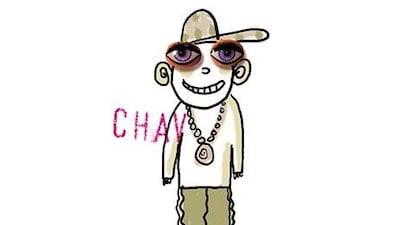The grind of the 21st century throws up obstacles at every turn. Nikolaus Oliver is on hand with advice to guide you through. This week: how new words keep English alive and thriving. Truly, we are living in a great age for new words in the English language. Of course, this doesn't please everyone. There are always those who think that English should have been stopped from evolving with the death of Shakespeare. They overlook the fact that Shakespeare himself invented words with gay abandon, some of them very odd indeed. Many Shakespeareanisms have entered the language: "brittle", "bump", "cranny" and the excellent "excellent". Others haven't: for example, "tortive" and "vastidity".
Purists of English often have a special dislike of American English, despite the fact that it is full of archaic English words that those in the old country left behind centuries ago, such as garbage, faucet and davenport. Neologisms have appeared from all corners of the English-speaking world. Perhaps the top US neologism of the decade has been bling, coined to convey the effect of light reflecting from massive and vulgar jewellery. Bling perfectly expresses the ostentation, greed and vacuity of popular culture in the past 10 years.
The UK has given us chavs, meaning ghastly people who hang around malls being noisy, wearing Burberry checks, trainers and bling. Supposedly, it originates from the Gypsy word for child. Australian neologisms tend to be easy ways of saying long things, such as ute for utility vehicles, or they have to do with beer: middy, long-neck, stubby, roadie - the list is endless (and these words just describe the bottles).
My view is that new words are to be welcomed into the language as we welcome new babies into the family. The more the merrier, and as every family needs new blood to keep it alive and thriving, so it is with language. These cooing, burbling and occasionally nappy-filling newcomers may not all survive into adulthood - probably the majority will fall into disuse quite rapidly. Fleeting terms - such as staycation (holidaying at home in a recession) and noughties (the previous decade), nevertheless help us to get a handle on life as we experience it.
But those that last - I suspect that generica (things in the landscape, such as shopping malls, prefabricated housing, fast-food outlets and so on, that make everywhere look like everywhere else) will be among them - give us a genuine new understanding of reality. Neologisms are one reason why English is so much better and more fun than, say, German or French. Can the French enjoy textpectation, the excitement of awaiting a text message? I think not.

